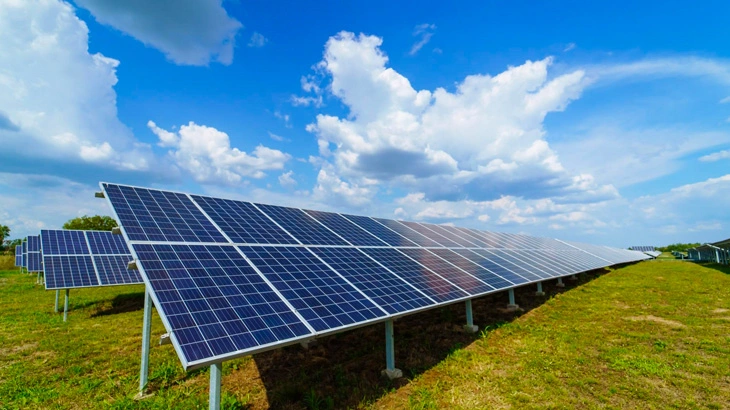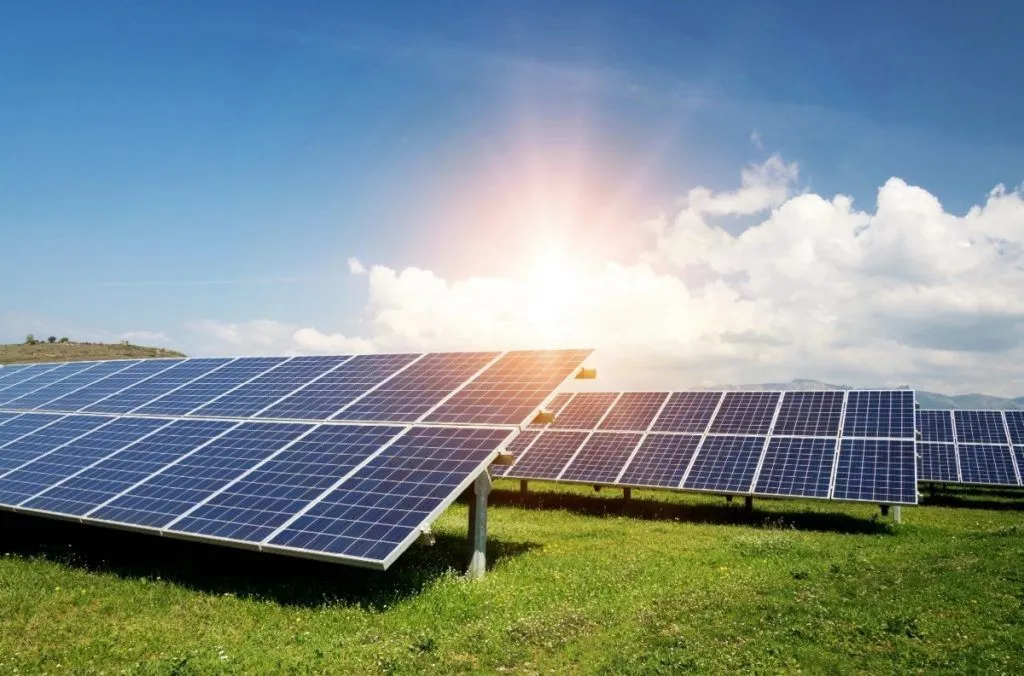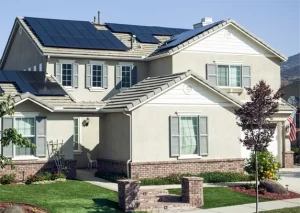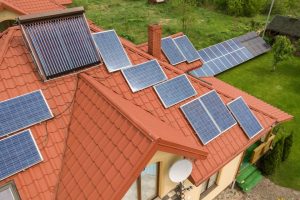Special Function Unveiled: How Inverters Stay Efficient in Cloudy Weather
In solar photovoltaic systems, electrical inverters are crucial for converting the direct current (DC) generated by solar panels into alternating current (AC) for use in homes and businesses. However, cloudy weather poses a unique challenge for the efficiency of inverters, as rapid changes in sunlight lead to fluctuations in the power output of photovoltaic panels. To address these challenges, inverter power systems must be equipped with advanced technologies to maintain stable and efficient energy conversion. This article explores how modern electricity inverters manage to stay efficient during cloudy conditions and the key technologies that make this possible.
The Role of Electrical Inverters in Solar Systems
At the heart of every solar energy system is the electrical inverter, a device responsible for converting the DC electricity produced by photovoltaic panels into AC electricity that can power homes and businesses. During sunny conditions, inverters work steadily, converting the consistent flow of energy from the panels into usable power. However, in cloudy weather, the amount of sunlight reaching the panels can change rapidly, leading to fluctuations in the energy produced. These rapid changes in light intensity create a challenge for the inverter power system, which must adapt quickly to maintain a stable energy supply.
Maximum Power Point Tracking (MPPT) Technology: Key to Efficiency
To address the variability caused by cloudy weather, modern electricity inverters are equipped with Maximum Power Point Tracking (MPPT) technology. MPPT is an intelligent control system that monitors the output of photovoltaic panels in real time and adjusts the inverter‘s operating point to ensure it is always extracting the maximum possible energy from the available sunlight. This is especially important in cloudy weather, where the sunlight levels can change frequently and unpredictably.
MPPT allows the inverter to adapt quickly to these changes, ensuring that the system remains efficient even when the sunlight is inconsistent. By optimizing the operating point of the panels, MPPT ensures that the electrical inverter delivers stable and efficient inverter power output, preventing significant drops in energy supply during cloudy periods. This capability is crucial for maintaining a reliable energy source in environments where weather conditions fluctuate regularly.

Advanced Heat Dissipation for Enhanced Stability
Another critical factor in maintaining the efficiency of electricity inverters in cloudy weather is managing the heat generated during operation. Inverters can generate significant amounts of heat, particularly when the power output fluctuates rapidly due to changes in sunlight. Without proper heat dissipation, the internal temperature of the inverter can rise, leading to reduced efficiency and potentially damaging the system.
Modern electrical inverters use advanced heat dissipation designs to ensure that the equipment remains cool and stable, even during periods of high demand or rapid power changes. Some inverters are equipped with heat pipe cooling systems or forced air cooling, which helps dissipate heat more effectively. This not only prolongs the lifespan of the inverter but also ensures that it operates efficiently in all weather conditions, including cloudy weather where power fluctuations are frequent.
Protection Mechanisms to Ensure Reliability
In addition to MPPT and heat dissipation technologies, modern electricity inverters are designed with multiple protection mechanisms to safeguard against power fluctuations caused by cloudy weather. These inverters often include overload protection, short circuit protection, and overheating protection. These features prevent the system from being damaged by sudden power surges or internal temperature spikes, ensuring that the inverter continues to operate efficiently and safely.
For example, some high-end inverters feature independent air duct designs, which ensure that hot air is expelled from the inverter without affecting the core power distribution components. This design helps maintain temperature stability, allowing the inverter to handle rapid changes in sunlight without risking overheating or performance degradation.

The Future of Efficient Inverters in Cloudy Weather
As photovoltaic technology continues to evolve, the future of electrical inverters looks promising. Advances in MPPT technology, heat dissipation designs, and intelligent control systems are making inverters more efficient than ever before. In addition, the integration of mechanical storage solutions will further enhance the reliability of solar systems, especially in regions where cloudy weather is common.
Looking forward, we can expect electricity inverters to become even smarter, with the ability to predict weather patterns and adjust their operations accordingly. These innovations will help improve the overall efficiency of solar energy systems, making renewable energy a more reliable and accessible option for consumers worldwide.
Conclusion
The efficiency of electrical inverters in cloudy weather is critical to the success of solar photovoltaic systems. Through the use of MPPT technology, advanced heat dissipation designs, and integrated protection mechanisms, modern inverter power systems can maintain stable and efficient energy output even in challenging weather conditions.
By pairing these inverters with mechanical storage solutions, users can create a resilient energy system capable of handling fluctuations in sunlight while ensuring a consistent power supply. As technology advances, electricity inverters will continue to play a key role in making solar energy more efficient, reliable, and sustainable.
Contact us
- Email:[email protected]
- Tel: +86 13651638099
- Address: 333 Fengcun Road, Fengxian District, Shanghai
Get A Quote Now!
Related product links are available directly
Site storage products:Site storage products 归档 – (energystoragecontainer.com)
Lithium Battery:Lithium Battery 归档 – (energystoragecontainer.com)
Read more

Five Advantages of Residential Solar Power: Why Choose Photovoltaic Energy?
As global energy demands continue to rise and environmental issues become more urgent, more and more households are turning to solar power systems. Residential solar photovoltaic (PV) power generation not only helps save energy and reduce carbon emissions but also provides numerous practical benefits in daily life.

Comparison of Functions and Applications Between Home Energy Storage Systems and Outdoor Mobile Power Sources
As our world becomes increasingly reliant on energy-efficient solutions, two popular products have emerged to meet different power needs: the home energy storage system and the outdoor mobile power supply (or portable power station).

From Sun to Socket: An Analysis of the Whole Process of Home Solar Power Generation
Solar energy is no longer just a futuristic concept; it’s here and it’s powering homes across the globe. But have you ever wondered how that sunlight streaming onto your roof gets turned into electricity to charge your devices?

Nighttime Solar Energy: How to Use Energy Storage to Achieve a 24-Hour Power Supply
For many homeowners, the dream of achieving a reliable household solar energy system that can provide power around the clock is becoming a reality. With advances in energy storage devices, especially lithium batteries, even a dark night doesn’t have to mean an interruption in power.
